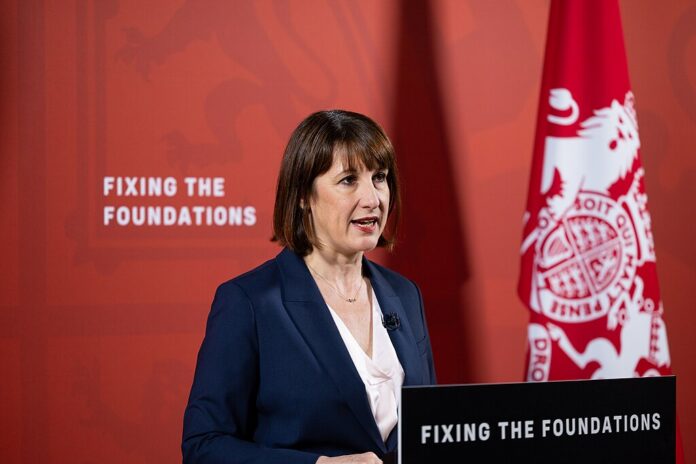Amid promises to shield working people from higher payslip taxes, the door remains open for potential increases in other taxes
In a highly anticipated address today, Chancellor Rachel Reeves is poised to unveil Labour’s first budget in 15 years, declaring a commitment to “invest, invest, invest” in the UK economy. Scheduled to speak in the Commons at 12:30 PM, Reeves aims to reassure the public that working people won’t see higher taxes on their payslips, yet nuances in her promises suggest a more complex fiscal landscape ahead.
While she insists on protecting employees from increases in national insurance, it appears that this pledge will only apply to employee contributions, effectively leaving room for potential tax hikes for employers. This distinction raises concerns among business leaders who may face increased financial burdens as the government seeks to raise funds for its investment plans.
In her upcoming speech, Reeves is expected to emphasise that both income tax and VAT will remain unchanged, promising to deliver “more pounds in people’s pockets.” This reassurance comes amidst warnings that this could be the “biggest tax-raising budget in history.”
Embed from Getty ImagesWith the overarching theme of investment in public services and economic recovery, Reeves aims to restore faith in Labour’s financial stewardship, stating, “My belief in Britain burns brighter than ever. And the prize on offer today is immense.” However, by limiting her tax guarantees to employee payslips, she leaves open the possibility for increases in a range of other taxes, including inheritance tax, stamp duty, capital gains tax, fuel duty, tobacco duty, and alcohol duty.
As the nation watches closely, the delivery of this budget will be pivotal for Labour’s image as it navigates the complexities of public finances while aiming to support economic growth. The government’s fiscal decisions in the coming months will significantly impact households and businesses alike, as Reeves attempts to balance the urgent need for investment with the realities of taxation.
FINANCIAL TIMES
The UK’s tax burden is set to increase significantly under Chancellor Rachel Reeves as she prepares to deliver her first Budget, marking a historic shift towards aligning British government revenues more closely with EU averages. According to IMF data, the gap between the UK’s revenue-to-GDP ratio and the EU average is expected to shrink to a record low of 6.5 percentage points this year, with the UK at 39.1% and the EU at 45.6%. This figure is a marked change from a 9.1 percentage point gap in 2010.
Reeves’ upcoming Budget is anticipated to introduce substantial revenue-raising measures, responding to public demand for improved public services comparable to those in other European nations. Following Labour’s return to power in July, Prime Minister Sir Keir Starmer has emphasised the need to face the “harsh light of fiscal reality,” signalling an acceptance of higher taxes to avoid permanent increases in national debt.
Economic experts, including Isabel Stockton from the Institute for Fiscal Studies, suggest that public sentiment in the UK supports higher spending on public services, which necessitates increased taxation. The Office for Budget Responsibility forecasts that the UK tax burden could reach 37.1% by 2028-29, representing the highest level in eight decades and reflecting a significant shift in the fiscal landscape as the government seeks to balance its books amid rising demands for public expenditure.
THE GUARDIAN
As the UK approaches Chancellor Rachel Reeves’s first budget, public sentiment reflects a mix of hopes and fears about the government’s fiscal direction. Many Britons are concerned about the potential for inadequate taxation on the wealthy, with calls for measures to ensure they contribute more to public finances. Martin Coult, a 68-year-old retiree from London, exemplifies this worry, citing his own financial struggles due to fiscal drag and cuts to benefits. He argues for higher taxes on private education and capital gains, which he believes should align more closely with income tax rates.
Coult’s concerns are echoed by others who fear that the government may soften its stance on taxing the rich, which could hinder necessary investment in public services. As he faces a £800 shortfall from lost benefits and frozen tax thresholds, he expresses a desire for fairness in taxation, advocating for a system where the wealthy bear a larger share of the tax burden.
This sentiment captures a broader anxiety among the public, highlighting the delicate balance the government must strike between generating revenue for essential services and ensuring that vulnerable populations, including pensioners and the long-term sick, are not disproportionately affected by fiscal changes. As Reeves prepares her budget, the anticipation of how these competing interests will be reconciled looms large in public discourse.
THE TELEGRAPH
As Chancellor Rachel Reeves approaches her first budget on Wednesday, concerns are mounting about the UK government’s ability to attract buyers for the anticipated increase in debt issuance. Gilt yields have already risen, signalling market nervousness over the planned easing of fiscal rules aimed at facilitating greater borrowing for investment spending. This situation mirrors the challenges faced during Liz Truss’s brief premiership, where a similar reliance on borrowing for growth led to turmoil.
The government’s strategy reflects an acknowledgment of the underlying economic issue of stagnant growth, with both Reeves and Prime Minister Keir Starmer advocating for a substantial increase in public investment to stimulate the economy. However, this strategy raises alarms among investors about the sustainability of such borrowing, particularly given the recent historical precedent of financial instability triggered by the mini-Budget under Truss.
Reeves has been cautious, taking time to prepare her budget and gauge market sentiment by selectively leaking key details to the press. Yet, the spectre of rising debt servicing costs looms large, and the risk of losing investor confidence remains high. As she finalises her plans, the ability to balance necessary public investment with market expectations will be crucial for the government’s fiscal credibility moving forward.
